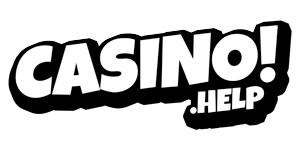Rewind: ‘Apocalypse Now – Final Cut’ Review
Stars: Martin Sheen, Marlon Brando, Robert Duvall, Frederic Forrest, Sam Bottoms, Laurence Fishburne, Harrison Ford, Albert Hall, Dennis Hopper, Scott Glenn | Written by John Milius, Francis Ford Coppola | Directed by Francis Ford Coppola
You don’t have to be mad to work here (but it helps)…

I love Apocalypse Now. As a piece of cinema, it attempts to explain not only a war but something in the hearts of men. It has the flashy set pieces of war films, it has the great music of the Vietnam era as a soundtrack but it also has a tale that has gnawed at me for years. Something about it unsettles me more than I would like to admit. It sounds like a terrible idea for a Hollywood feature and I very much it would get green lit today. Watching it again I was interested to see that Martin Sheen is third in the credits (after Brandon and Duvall).
The final cut does some interesting things, it adds more screen-time with the crew of the PT boat, which is very welcome but to me the journey Willard and his band take is always a fascinating one, regardless of which version of the film I watch. We also experience a dreamlike encounter with some “ghosts of the past” in the form of a French Colonial plantation, that I found fascinating. This time around I found Duvall’s “Big Duke” far less amusing and far more terrifying.
“Someday, this war is going to end” Robert Duvall’s character solemnly declares to his men, during a battle. But how can this ever end? How can these characters, so traumatized by the Vietnam experience ever “go back”? The French, like many of the other characters have no home left to go. They are trapped in a moment in time. We know at the beginning of the film that Willard himself is back for a second tour having miserably failed to go back to a “normal” life with his wife. Only Vietnam makes sense to him. There is no going back from this. Even as Willard and our surfer start putting down river with uncertain purpose there is no going back. The only character who, possibly could of was Chef, he was the innocent, tightly wound one who seemed to have a passion and reason to live back in the US of A.
Watching Apocalypse Now: Final Cut, I feel I have a much clearer idea of what the film is “about”. The US military was dropped into an impossibly savage war it did not understand and it could not win. As Willard travels upriver he meets many people who seem insane. The US is trying to win a primeval struggle where the more terrible beast is going to win, and it is trying to do it in a semi civil way and the extreme contradictions of what is really happening and what the US wants to happen are causing mania. Everyone is becoming unstuck.
We know the US military leaders started to get horrified by Kurtz after he executed four South Vietnamese Government higher ups. In doing so he magically ended insurgency in that area, and yet, despite the many, many indiscriminate killings we see through the film that causes not the bat of an eye lid, it was the naked intent of Kurtz that so shocked his bosses so much as to want him dead.
Kurtz sees the war clearly. He is the only one on the US side who does. He understands, the only way to win is the be more terrible than the terrorists, to have absolutely no moral compunctions, to split oneself in two and be entirely free of guilt or judgement when committing acts against the enemy. The horrible irony is that Kurtz never wanted this war, he had fought and been a conventional hero in previous conflicts, but Vietnam was different. He acted in the only sane way, to win the war and in doing so he damned his soul. He was never able to split his soul in two and hence he knew that he must die, what he had built must be expunged from the world and yet, as a soldier, a man and perhaps as a beast he could not kill himself, and he could not leave his creation. He therefore only had 1 way out, and that was Willard to hack him to pieces, like the ceremonial cow. Kurtz never took pleasure in these things that “needed to be done” but his duty demanded it. Kurtz hated this war but the soldier in him was committed to seeing it through, as far as he could.
Kurtz tells Willard as much, that he must seek out his son and explain it to him (how can such things truly be explained to those that never experienced them?) and yet Kurtz is not insane, in fact he is cursed by his sanity and his clarity of thought. He understands the riddle of Vietnam and the American presence there and that is his curse. When Willard leaves the temple, having “released” Kurtz of his burden, he is Kurtz and the followers understand this. Willard is then Kurtz but he is finally free to leave that hellish place of madness (for Kurtz is surely surrounded by the mad) and singular purpose.
As Willard cradles the dying Chief. Chief tries, with his last breath to take Willard with him. Was this in revenge? For Willard bringing him and his crew of misfits onto this awful path of discovery? Or does he see Willard for who he really is? Like Kurtz, Willard is capable of anything. Chief saw that when he cooly finishes off the young lady on the Sampan so the mission can continue. In truth, in the temple the process of Willard becoming Kurtz is complete, but it started much sooner.
Does Willard call in the airstrike at the end? I believe he does. Not because he wants to, but because he finds the writing of Kurtz and it was what Kurtz wanted.
Who “wins” in this war film? No one. And perhaps the survivors least of all. The horror, the horror.








































